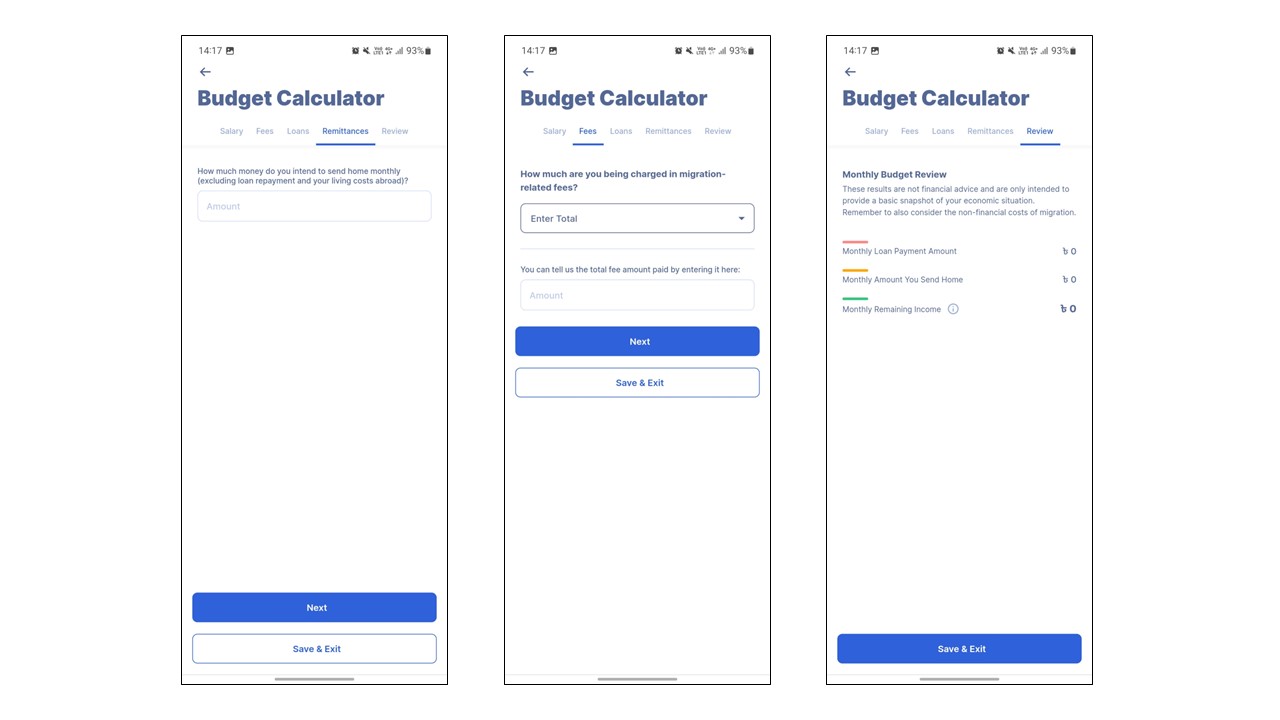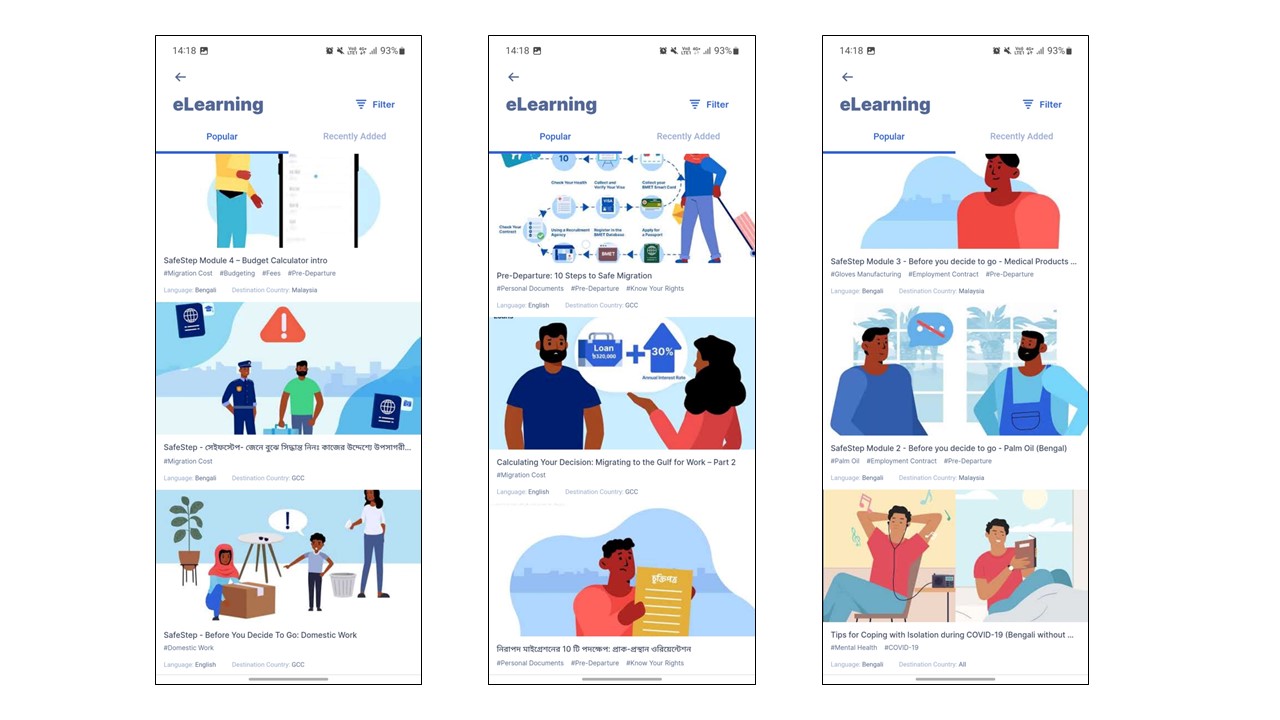Managing Responsible Recruitment: Navigating Human Rights Challenges with the SafeStep App
Human rights due diligence laws are becoming increasingly stringent. There is a rising expectation from consumers and investors for companies to improve their performance on human rights issues, and businesses are having to contend with the complexities of ethical and responsible recruitment.
The challenges are ever apparent: as outlined in the 2023 US State Department Trafficking in Persons (TIP) report, unscrupulous labour recruiters are increasingly using online tools to deceive vulnerable job seekers, placing them at risk of forced labour.
How then can companies address the lack of safeguards in the recruitment process?
ELEVATE’s SafeStep app, borne out of a partnership with the Global Fund to End Modern Slavery (GFEMS), Winrock International, and Diginex, offers companies a tool that helps them to navigate the many complexities of responsible recruitment. This collaboration was acknowledged in the 2023 TIP report where SafeStep was mentioned, underscoring the power of partnerships in monitoring and eliminating forced labour in supply chains and enhancing worker protections (see page 30 of the TIP report). By helping migrant workers throughout their recruitment journey, SafeStep gives workers early visibility of issues, enabling early prevention and mitigation.
SafeStep gives companies early labour migration visibility to mitigate real business risks
Companies almost always lack visibility of the pre-departure stage of labour migration. Many of the issues that arise from the recruitment of migrant workers begin even before workers set foot in the country of employment. For example, sub-agents commonly charge extortionate recruitment fees or confiscate travel documents. The ability to monitor risks at an early stage mitigates potentially devastating financial repercussions, such as having to repay illegal recruitment fees – which can add up to millions of dollars – or having to resolve an import ban, which can have existential significance.
SafeStep has features that allow companies to detect and prevent recruitment fees early. The Budget Calculator identifies if there are any fees that should be reimbursed by an employer and provides migrant workers with guidance on how to maintain receipts for reimbursement. Companies are then able to provide timely remediation to workers and to hold non-compliant labour agencies to account. These measures ensure that the company adheres to the Employer Pays Principle, a cornerstone of responsible recruitment.

SafeStep enables companies to comply with fast-evolving regulatory requirements
Human rights legislation has evolved significantly in the last decade and companies are increasingly expected to align their due diligence requirements with the UN Guiding Principles on Business and Human Rights (UNGPs). Companies are expected not only to assess human rights risks, but to implement robust action plans to address and mitigate these risks. SafeStep’s SurveyBuilder enables companies to meet these requirements through the deployment of mass surveys to their workforce to understand risks that may arise during the recruitment, employment, and repatriation process.
An often-neglected component of the due diligence process, as outlined in the UNGPs, is the provision of effective grievance mechanisms to affected stakeholders. Companies can ensure that workers have access to such mechanisms with SafeStep. Workers can access a dedicated helpline that gives them access to assistance through a trusted, third-party channel. The app is also integrated with an interactive chatbot that allows workers to receive real-time responses to questions and concerns.
“[SafeStep] … can support us in getting periodic live data on workers’ living and working conditions as well as their recruitment experience. We can use this to develop action plans for responsible recruitment.”
Head of Sustainability, Compliance and Certification, Onetexx Sdn Bhd.
SafeStep can be used as a capacity-building tool for management and suppliers
Training stakeholders to recognise and address forced labour enables companies to proactively embed responsible recruitment practices rather than operating reactively. The app’s employer web portal provides resources for companies to be better equipped with responsible management practices to prevent and address forced labour. Additionally, informative eLearning videos serve as a learning centre for management, HR and third-party labour providers, creating greater awareness of how to responsibly recruit and manage migrant workers. These training methods also provide companies with opportunities to enhance stakeholder engagement, further building trust with third-party labour suppliers looking to improve their own recruitment and management practices. Links to the training videos can be found here.

Amplifying trust is essential for maintaining social license to operate
SafeStep is not a silver bullet for preventing forced labour, but it does provide companies with much needed safeguards to detect risk early on and demonstrate the active steps to mitigate forced labour in complex and rapidly evolving labour markets. It is also currently the only end-to-end solution available for both workers and employers throughout the recruitment and employment journey. Ultimately, the app is designed to amplify trust and improve relations between employers and workers, which in turn enhances productivity and ensures compliance in an evolving regulatory environment.
Scalable tools like SafeStep are the future for building robust responsible recruitment programs. For employers looking to improve transparency within recruitment systems, you can learn more about SafeStep and download it here and contact us for a free demonstration.
About the author
